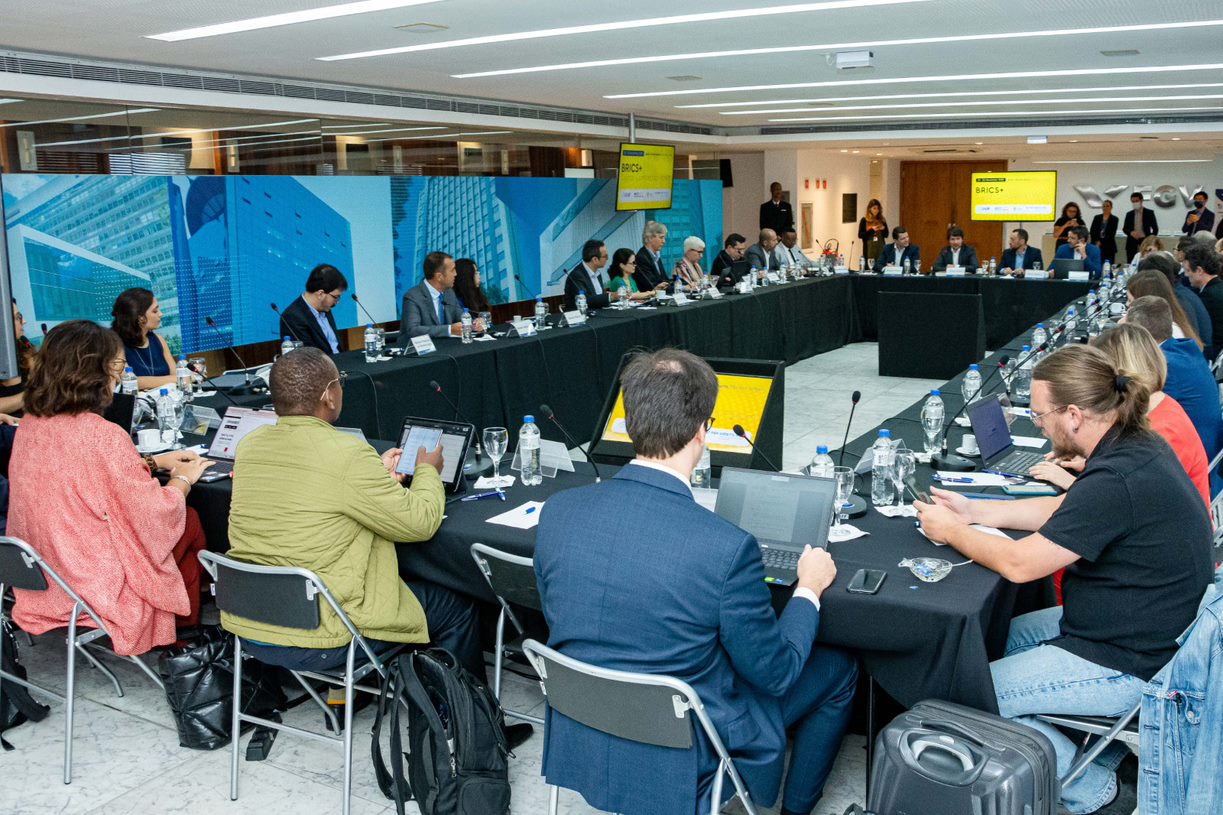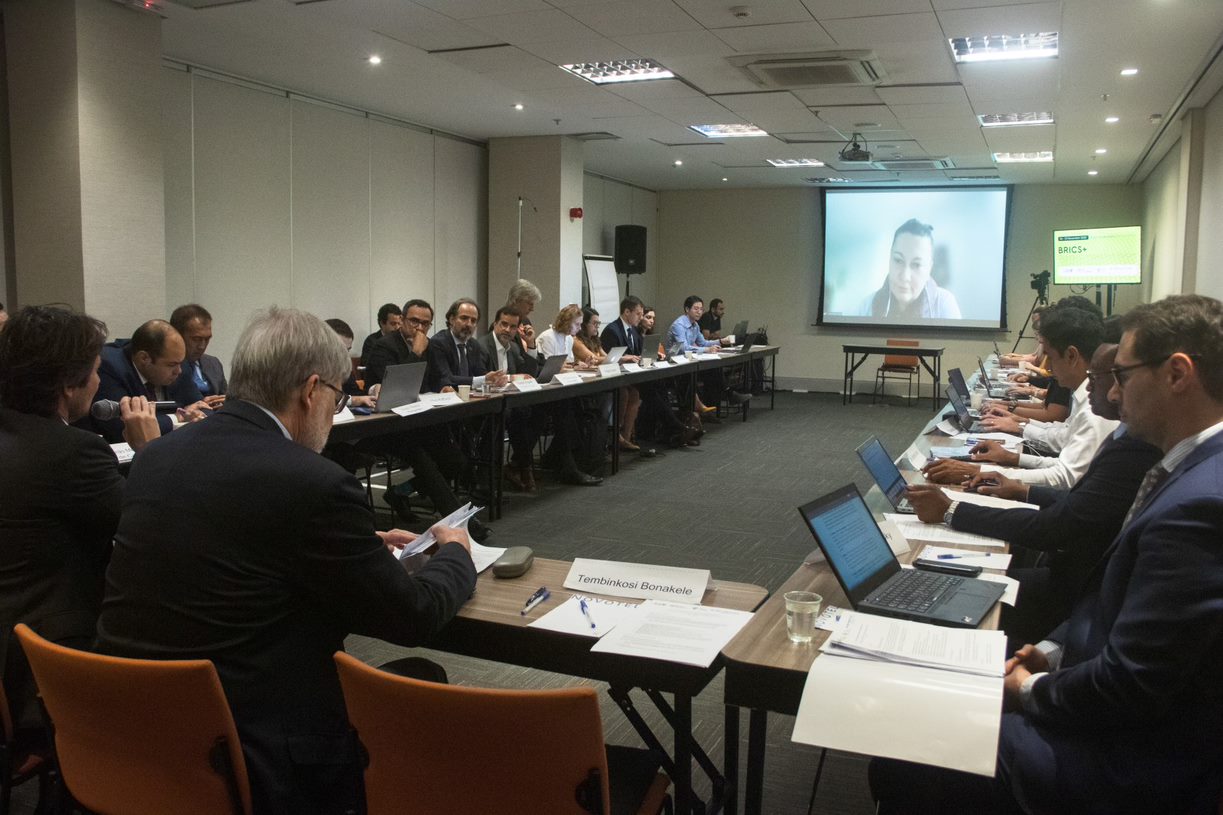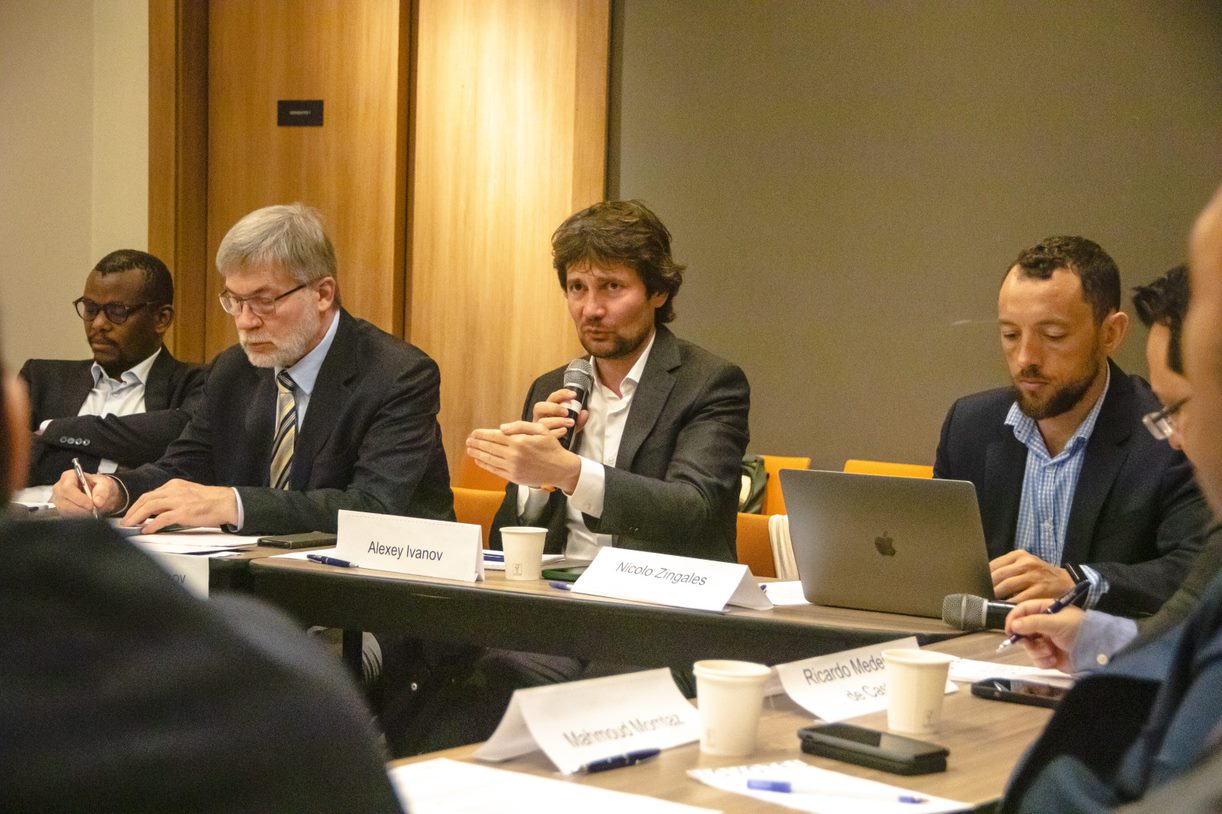
Economic thinking has continuously sought inspiration from natural sciences such as physics, biology, and mechanics. Elena Rovenskaya, as part of her ongoing research in ASA, delivered a presentation on the ecological concepts and theories which can revive economic thinking to better inform competition law and policy formulations in a dynamic digital environment.
Digital platforms and platform ecosystems have become fundamental to the functioning of the digital economy. They provide crucial digital infrastructures which facilitate global interactions and expedite the co-creation of value. However, the same digital platforms and ecosystems capture and exploit the data, resources, and value generated from their infrastructures and monetize it to earn disproportionate revenue and market power. Mainstream economics have informed competition and antitrust policies since the 2nd Industrial Revolution. However, in today’s rapidly transformative and interconnected era, mainstream economic models and theories do not serve to inform regulators on the complex network structures, interdependencies, and value co-creations which are intrinsic to digital platforms and ecosystems.
On 24 November 2022, the Fundação Getulio Vargas (FGV) Direito Rio hosted the BRICS+ Digital Competition Forum in partnership with the BRICS Competition Law and Policy Center in Rio de Janeiro, Brazil. The forum brought together policymakers, stakeholders, and experts in the fields of economics and competition law from across BRICS and Central Asia to discuss the major challenges facing regulators in the digital economy. In particular, the leadership representatives of competition authorities from BRICS countries as well as Argentina, Cambodia, Egypt, Kazakhstan, and several others contributed insights into the experiences of regulating digital transformations in their respective regions.
Advancing Systems Analysis (ASA) Program Director Elena Rovenskaya presented the latest work of the ASA program on how CAS theory and systems ecology can help to advance the antitrust tools and policies necessary to mitigate the monopolistic behavior of incumbent digital platforms. Rovenskaya discussed the characteristics of established mechanistic mental models of economic agents such as profit-maximizing determinism, reversibility of decisions and actions to respond to market trends, and continuity of economic trajectories. She then compared these with the contrasting characteristics of the digital economy such as the ambiguity of objectives including market share or capitalization over revenue; path-dependence of economic dynamics; and tipping effects leading to low level of long-term predictability. Her presentation demonstrated the ineptness of mainstream economic models in understanding the features intrinsic to complex digital ecosystems.
ASA’s research on the concept of ECOANTITRUST simulates that digital economy, its ecosystems, and agents must be analyzed not as conventional economic models but under the lens of complex adaptive systems (CAS) theory. Rovenskaya highlighted the heuristic nature of metaphors and analogies in inspiring the current mechanistic models of economics. Just as economics once derived from natural sciences, it can now derive from systems ecology to better understand the intricacies of the digital economy. By using systems ecology as the source domain of CAS theory; scientific analogies, methods, and insights can bring to light useful policy tools which revive competition in digital markets without hindering the advantageous innovations and welfare of digital platforms and ecosystems.
Overall, the forum’s participants positively received the use of new perspectives on the digital economy. Former Chairman of the South African Competition Commission, Tembinkosi Bonakele underscored the need for new approaches and expressed optimism on the potential of ECOANTITRUST research in delivering novel competition policy tools suited for the heightened complexity of the digital economy. Paulo Furquim de Azevedo, Professor at the INSPER Institute of Education and Research added that given the limitations of the current mainstream economic approach, ecological insights could contribute to the convergence of crucial objectives for competition authorities.
The forum facilitated excellent discussions on the radical concentration of digital markets and the role of regulators in protecting consumer interests.
To read more about the BRICS+ Competition forum, click here. You can also download the event report using this link.
 © IIASA
© IIASA
Audience members and speakers of the BRICS+ Competition Forum 2022
 © IIASA
© IIASA
Elena Rovenskaya presenting virtually on ECOANTITRUST
 © IIASA
© IIASA
Director of BRICS Competition Law and Policy Center speaking on antitrust fragmentation in the digital economy
News

26 September 2024
Regulating Artificial Intelligence: From BRICS to Beyond

05 June 2024
The 2024 State of CDR Report: Scaling up CO2 removal to meet Paris Targets

23 April 2024
